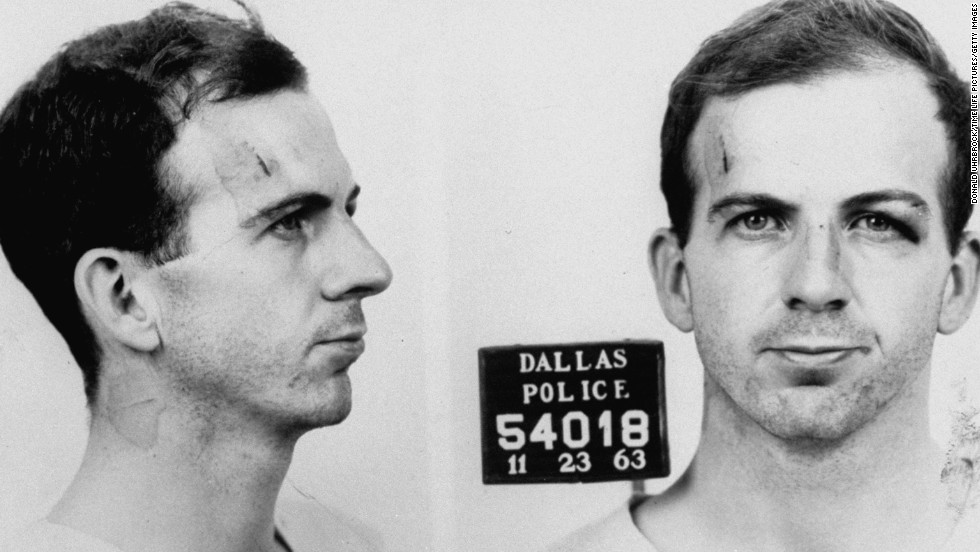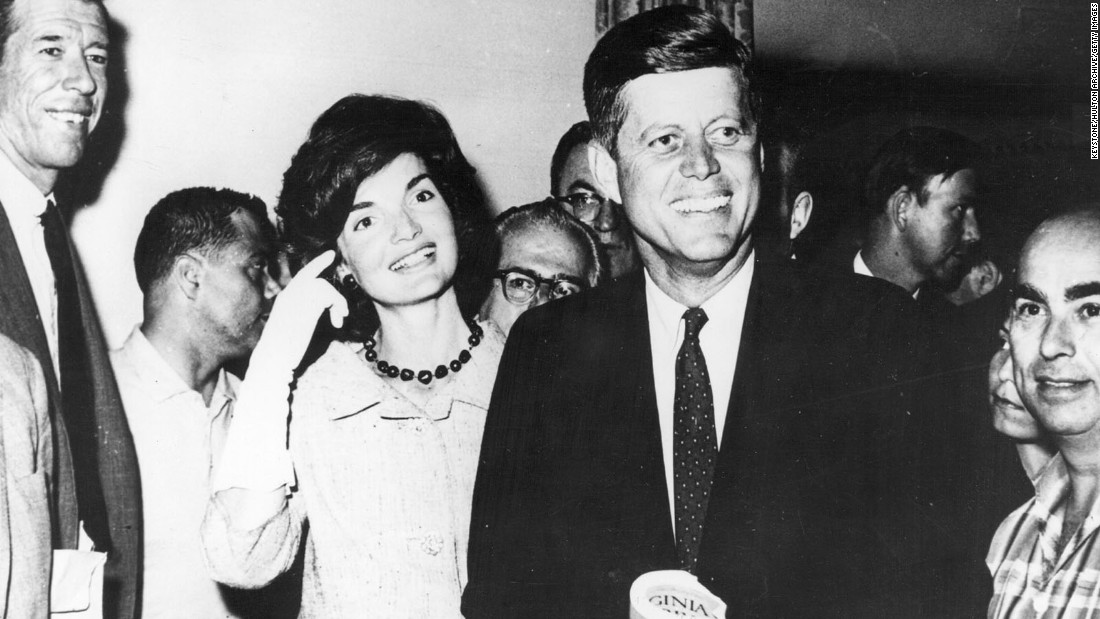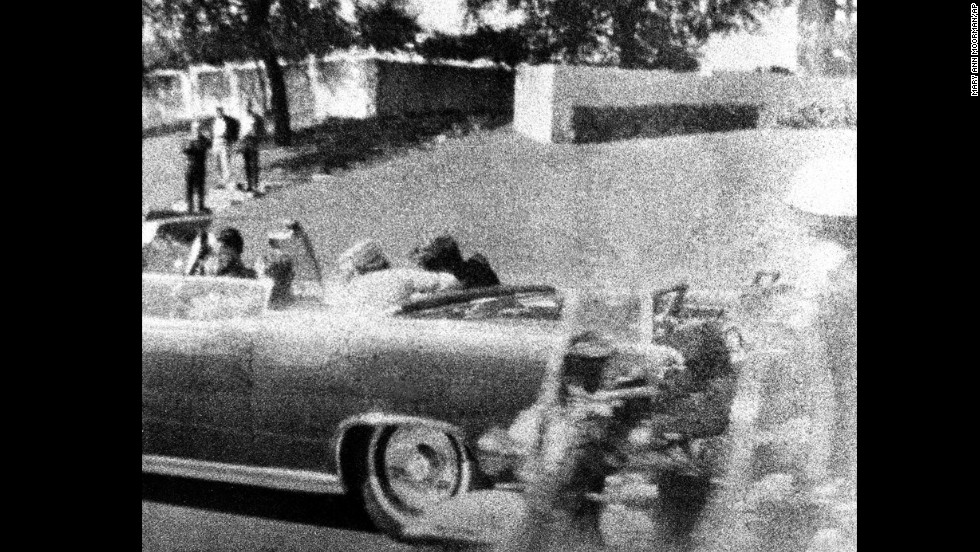John F. Kennedy's assassination remains one of the most controversial events in modern history, sparking countless debates and conspiracy theories about the role of the CIA in his death. While the official narrative attributes the assassination to Lee Harvey Oswald acting alone, many researchers and historians argue that deeper forces were at play. Understanding why the CIA might have been involved requires a comprehensive examination of historical context, political motives, and evidence.
Kennedy's presidency was marked by significant policy shifts that challenged powerful interests within the U.S. intelligence community. His vision for a more peaceful world, including plans to withdraw from Vietnam and improve relations with the Soviet Union, created tensions with hawkish elements in the CIA. These policy changes, combined with Kennedy's efforts to reform the intelligence community, have fueled speculation about a potential CIA involvement in his assassination.
As we explore this complex topic, it's crucial to separate fact from fiction while acknowledging the limitations of available evidence. This article will examine the historical context, evaluate the evidence, and analyze the motivations that might have led certain CIA elements to conspire against the president. By understanding the broader geopolitical landscape of the early 1960s, we can better comprehend the potential reasons behind this tragic event.
Read also:Bryce Harper Baby Name A Comprehensive Look Into The Future Legends Naming Journey
Table of Contents
- Historical Context: The Early 1960s Political Landscape
- John F. Kennedy: A Brief Biography
- The CIA's Role in American Politics
- Potential CIA Motives for Targeting Kennedy
- Analyzing the Evidence
- Exploring Conspiracy Theories
- The Official Warren Commission Report
- Criticism of the Official Narrative
- The Assassination's Impact on American Politics
- Conclusion: What We Know and What We Can't Prove
Historical Context: The Early 1960s Political Landscape
The early 1960s were a period of intense geopolitical tension, with the Cold War reaching its peak. The United States and the Soviet Union were engaged in a global struggle for influence, leading to numerous covert operations and proxy wars. The CIA, established in 1947, had grown into a powerful intelligence agency with significant influence over American foreign policy.
During this time, the CIA was involved in several controversial operations, including the failed Bay of Pigs invasion in 1961 and covert actions against communist regimes worldwide. These operations often operated outside of official government oversight, creating what some historians refer to as a "shadow government" within the U.S. intelligence community.
Key Events Leading Up to the Assassination
Several critical events during Kennedy's presidency contributed to growing tensions with the CIA:
- The Bay of Pigs failure led to a loss of credibility for the CIA and strained relations with the president.
- Kennedy's decision to limit CIA involvement in Vietnam contradicted the agency's aggressive approach.
- His efforts to improve relations with Cuba and the Soviet Union were seen as undermining the CIA's anti-communist agenda.
John F. Kennedy: A Brief Biography
John Fitzgerald Kennedy was the 35th President of the United States, serving from January 1961 until his assassination in November 1963. Born on May 29, 1917, in Brookline, Massachusetts, Kennedy came from a prominent political family and was a decorated World War II veteran before entering politics.
John F. Kennedy's Biodata
| Full Name | John Fitzgerald Kennedy |
|---|---|
| Birth Date | May 29, 1917 |
| Birth Place | Brookline, Massachusetts |
| Presidential Term | January 20, 1961 - November 22, 1963 |
| Political Party | Democratic |
The CIA's Role in American Politics
The Central Intelligence Agency played a crucial role in shaping American foreign policy during the Cold War era. Established by the National Security Act of 1947, the CIA's primary mission was to gather intelligence and conduct covert operations abroad. However, over time, the agency's influence expanded beyond traditional intelligence gathering.
By the early 1960s, the CIA had developed significant operational independence, often operating outside of direct presidential control. This autonomy created tensions with elected officials, particularly when presidential policies conflicted with the agency's strategic objectives.
Read also:2016 Olympics Allaround Gymnastics A Comprehensive Look At The Greatest Moments And Athletes
Key CIA Operations During Kennedy's Presidency
Several CIA operations during Kennedy's presidency highlight the agency's growing influence and potential conflicts with the president:
- The Bay of Pigs invasion in 1961, which aimed to overthrow Fidel Castro's government in Cuba.
- Covert operations against communist regimes in Southeast Asia, particularly in Vietnam.
- Attempts to assassinate foreign leaders considered hostile to American interests.
Potential CIA Motives for Targeting Kennedy
Several factors might have motivated certain elements within the CIA to conspire against President Kennedy:
- Kennedy's plans to withdraw from Vietnam contradicted the CIA's aggressive stance on containing communism.
- His efforts to improve relations with Cuba and the Soviet Union were seen as undermining the agency's anti-communist agenda.
- The president's attempts to reform the intelligence community threatened the CIA's operational independence.
Policy Conflicts with the CIA
Kennedy's presidency was marked by significant policy shifts that challenged the CIA's strategic objectives:
- His decision to limit CIA involvement in Vietnam marked a departure from previous administrations' aggressive approach.
- The president's efforts to improve relations with Cuba through secret negotiations contradicted the CIA's hardline stance.
- Kennedy's plans to reform the intelligence community threatened the CIA's institutional power.
Analyzing the Evidence
While the official Warren Commission Report concluded that Lee Harvey Oswald acted alone, numerous researchers have identified evidence suggesting CIA involvement:
- Documented instances of CIA agents operating in Dallas around the time of the assassination.
- Unexplained connections between Oswald and known CIA operatives.
- Testimony from witnesses suggesting multiple shooters were involved.
Challenges in Investigating CIA Involvement
Investigating potential CIA involvement in Kennedy's assassination presents significant challenges:
- Classified documents remain inaccessible to researchers and historians.
- Key witnesses have died or refuse to testify.
- The CIA's culture of secrecy makes it difficult to verify claims and counterclaims.
Exploring Conspiracy Theories
Countless conspiracy theories have emerged suggesting CIA involvement in Kennedy's assassination. While some theories are based on credible evidence, others rely on speculation and unverified claims:
- The "rogue element" theory suggests that a faction within the CIA acted independently without official approval.
- The "covert operation" theory proposes that the assassination was part of a larger intelligence operation.
- The "power struggle" theory argues that Kennedy's assassination resulted from a broader conflict between the executive branch and the intelligence community.
Evaluating the Credibility of Conspiracy Theories
When evaluating conspiracy theories, it's crucial to consider the following factors:
- The reliability of sources and evidence.
- Consistency with known historical facts.
- Plausibility of the proposed scenarios.
The Official Warren Commission Report
The Warren Commission, established by President Lyndon B. Johnson, concluded that Lee Harvey Oswald acted alone in assassinating President Kennedy. However, subsequent investigations, including the Church Committee hearings and the Assassination Records Review Board, have raised questions about the commission's findings:
- Documented instances of withheld evidence and classified documents.
- Testimony from witnesses that contradicted the official narrative.
- Concerns about the commission's methodology and independence.
Criticism of the Warren Commission
Many historians and researchers have criticized the Warren Commission's conclusions:
- Limited access to key evidence and witnesses.
- Failure to consider alternative theories and evidence.
- Potential conflicts of interest among commission members.
Criticism of the Official Narrative
Despite the Warren Commission's findings, significant questions remain about the official narrative:
- Unexplained connections between Oswald and known CIA operatives.
- Testimony from medical personnel suggesting multiple shooters.
- Documented instances of evidence tampering and witness intimidation.
Reassessing the Evidence
Modern researchers have access to previously classified documents and advanced forensic techniques:
- Ballistic evidence analysis using modern technology.
- Re-examination of witness statements and medical records.
- Analysis of CIA activities in Dallas during the assassination.
The Assassination's Impact on American Politics
Kennedy's assassination had profound effects on American politics and society:
- The Vietnam War escalated significantly after his death, contradicting his plans for withdrawal.
- Public trust in government institutions declined sharply in the following decades.
- The intelligence community gained even greater influence over foreign policy decisions.
Legacy of the Assassination
The assassination of President Kennedy continues to shape American political discourse:
- Debates about government transparency and accountability persist to this day.
- Public skepticism about official narratives remains a defining feature of American politics.
- The legacy of Kennedy's presidency serves as a reminder of the importance of independent investigations and open government.
Conclusion: What We Know and What We Can't Prove
While the official narrative attributes Kennedy's assassination to Lee Harvey Oswald acting alone, substantial evidence suggests potential CIA involvement. The complex geopolitical landscape of the early 1960s, combined with documented conflicts between the president and the intelligence community, creates a compelling case for further investigation.
We invite readers to explore the available evidence and draw their own conclusions. By examining both the official narrative and alternative theories, we can better understand this pivotal moment in American history. We encourage you to share your thoughts in the comments section and explore our other articles on historical events and political analysis. Together, we can continue uncovering the truth behind one of the most significant events of the 20th century.


